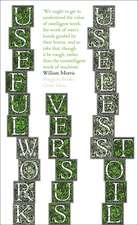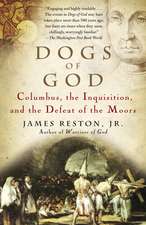Of the Abuse of Words: Penguin Great Ideas
Autor John Lockeen Limba Engleză Paperback – 26 aug 2009
Din seria Penguin Great Ideas
-
 Preț: 26.38 lei
Preț: 26.38 lei - 18%
 Preț: 40.74 lei
Preț: 40.74 lei - 18%
 Preț: 41.16 lei
Preț: 41.16 lei - 18%
 Preț: 40.83 lei
Preț: 40.83 lei - 28%
 Preț: 35.65 lei
Preț: 35.65 lei - 18%
 Preț: 40.83 lei
Preț: 40.83 lei - 18%
 Preț: 40.91 lei
Preț: 40.91 lei - 18%
 Preț: 40.83 lei
Preț: 40.83 lei - 18%
 Preț: 40.62 lei
Preț: 40.62 lei - 18%
 Preț: 40.55 lei
Preț: 40.55 lei -
 Preț: 49.67 lei
Preț: 49.67 lei -
 Preț: 49.63 lei
Preț: 49.63 lei - 18%
 Preț: 40.74 lei
Preț: 40.74 lei - 18%
 Preț: 40.74 lei
Preț: 40.74 lei - 18%
 Preț: 40.61 lei
Preț: 40.61 lei - 18%
 Preț: 40.90 lei
Preț: 40.90 lei - 17%
 Preț: 41.31 lei
Preț: 41.31 lei - 18%
 Preț: 40.94 lei
Preț: 40.94 lei - 18%
 Preț: 40.83 lei
Preț: 40.83 lei - 18%
 Preț: 40.77 lei
Preț: 40.77 lei - 18%
 Preț: 41.07 lei
Preț: 41.07 lei - 18%
 Preț: 40.94 lei
Preț: 40.94 lei - 18%
 Preț: 40.55 lei
Preț: 40.55 lei - 28%
 Preț: 36.08 lei
Preț: 36.08 lei -
 Preț: 49.60 lei
Preț: 49.60 lei -
 Preț: 49.85 lei
Preț: 49.85 lei -
 Preț: 49.74 lei
Preț: 49.74 lei - 18%
 Preț: 40.75 lei
Preț: 40.75 lei - 27%
 Preț: 36.36 lei
Preț: 36.36 lei - 18%
 Preț: 40.61 lei
Preț: 40.61 lei - 18%
 Preț: 40.81 lei
Preț: 40.81 lei - 18%
 Preț: 40.74 lei
Preț: 40.74 lei - 28%
 Preț: 35.48 lei
Preț: 35.48 lei - 18%
 Preț: 40.55 lei
Preț: 40.55 lei -
 Preț: 49.73 lei
Preț: 49.73 lei - 18%
 Preț: 40.78 lei
Preț: 40.78 lei - 18%
 Preț: 41.07 lei
Preț: 41.07 lei - 18%
 Preț: 40.77 lei
Preț: 40.77 lei -
 Preț: 49.70 lei
Preț: 49.70 lei -
 Preț: 49.80 lei
Preț: 49.80 lei - 18%
 Preț: 40.81 lei
Preț: 40.81 lei - 18%
 Preț: 40.91 lei
Preț: 40.91 lei - 18%
 Preț: 40.50 lei
Preț: 40.50 lei -
 Preț: 49.49 lei
Preț: 49.49 lei - 19%
 Preț: 40.22 lei
Preț: 40.22 lei - 17%
 Preț: 36.12 lei
Preț: 36.12 lei - 18%
 Preț: 40.74 lei
Preț: 40.74 lei - 18%
 Preț: 40.83 lei
Preț: 40.83 lei - 18%
 Preț: 40.55 lei
Preț: 40.55 lei
Preț: 40.71 lei
Preț vechi: 49.70 lei
-18% Nou
Puncte Express: 61
Preț estimativ în valută:
7.79€ • 8.12$ • 6.45£
7.79€ • 8.12$ • 6.45£
Carte disponibilă
Livrare economică 14-25 martie
Livrare express 27 februarie-05 martie pentru 22.22 lei
Preluare comenzi: 021 569.72.76
Specificații
ISBN-13: 9780141043876
ISBN-10: 0141043873
Pagini: 144
Dimensiuni: 111 x 181 x 8 mm
Greutate: 0.08 kg
Editura: Penguin Books
Colecția Penguin
Seria Penguin Great Ideas
Locul publicării:London, United Kingdom
ISBN-10: 0141043873
Pagini: 144
Dimensiuni: 111 x 181 x 8 mm
Greutate: 0.08 kg
Editura: Penguin Books
Colecția Penguin
Seria Penguin Great Ideas
Locul publicării:London, United Kingdom
Notă biografică
John
Locke
(1632-1704)
was
educated
at
Christ
Church,
Oxford
and
held
various
academic
posts
at
that
university,
lecturing
on
Greek
and
rhetoric.
However,
his
interests
lay
in
medicine
and
the
new
experimental
sciences
and
in
1667
he
became
personal
physician
to
the
Earl
of
Shaftesbury.
Under
the
influence
of
Shaftesbury,
Locke
developed
his
ideas
on
politics,
property,
trade,
monarchy
and
the
mind.
Shaftesbury
became
a
bitter
opponent
of
Charles
II
and
was
involved
in
the
plot
of
1683.
This
forced
Locke
to
flee
in
exile
to
Holland,
but
he
returned
after
1688
and
began
to
publish
his
most
famous
works.
He
wrote
also
on
theology,
education,
and
in
defence
of
religous
tolerance,
while
founding
the
analytic
philosophy
of
the
mind.




























